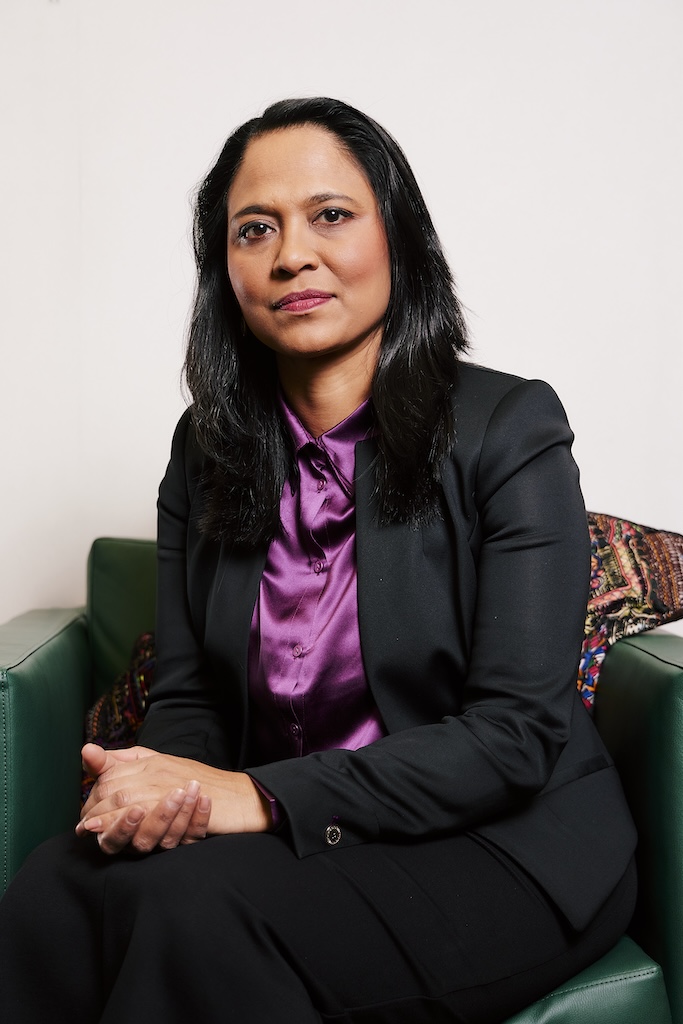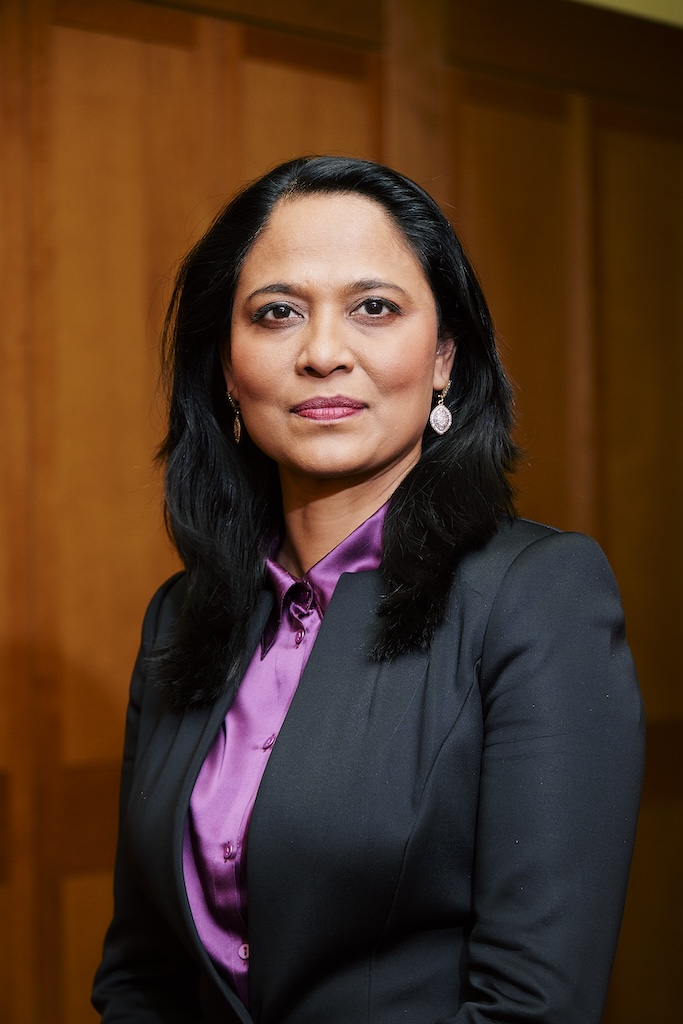Rushanara Ali: 'It’s depressing where things have got to in terms of investment in the UK'
Rushanara Ali (Photography by Jack Lawson)
10 min read
Shadow investment and small business minister Rushanara Ali talks to Sienna Rodgers about Labour’s offer to business, her work as a trade envoy to Bangladesh, and her thoughts on Gaza
Labour is back in business with business – that’s the message Keir Starmer and his team want the country to hear. We’re told corporation tax will be capped but bankers’ bonuses will not be. At the business conference Labour convened in central London at the start of the month, it boasted of hosting leaders from Google, Shell and AstraZeneca.
When Labour pitches itself as “the undisputed party of business”, it often looks like a laser focus on the very biggest in business. Are smaller enterprises being overlooked? Rushanara Ali, the shadow minister for investment and small business, dismisses the idea.
“It’s depressing where things have got to in terms of investment in this country”
“This is not about one or the other. It’s recognising big businesses don’t operate in isolation: their supply chain is medium and small businesses.” Labour has a “very clear plan for tackling late payments”, she says, referring to the party’s pledge to legislate to end the practice and force large companies to show they pay invoices promptly.
But in selling the policy she does hint at fighting for small firms in a David-and-Goliath battle, declaring that her party won’t allow big businesses to “take advantage of their market position and make life miserable for medium- and small-sized businesses”.
Ali was the first British Bangladeshi elected to Parliament and since 2010 has represented Bethnal Green and Bow, where the local authority is Tower Hamlets, home to the largest Bangladeshi population in Britain. Although they have the highest overall relative poverty rate of any ethnic group in the United Kingdom, small businesses are at the heart of the British Bangladeshi community.
“My constituency I don’t think is unique, but of course I’ll say it’s very special in terms of the importance of small businesses, and how they build communities. My father came to this country, came to work in this country, on a restaurant visa. For whatever reason, he ended up not actually working there in the end, and he went and worked for Claridge’s cleaning the silver in the kitchen. He was a 26-year-old, young, single man.
“The point about that story is that there are a lot of the first generation of Bangladeshis who came to the area, set up restaurants and cafes, and a multi-billion-pound industry was set up by the British Bangladeshi community, in the form of Indian restaurants set up in the 60s, pre-Bangladesh independence. The public understood ‘Indian’, and they’re still called ‘Indian restaurants’ but they’re actually Bengali-run restaurants. There’s always been innovation, and there’s always been entrepreneurialism.”
 Rushanara Ali (Photography by Jack Lawson)
Rushanara Ali (Photography by Jack Lawson)
Ali is the United Kingdom’s trade envoy for Bangladesh, an unpaid voluntary role she has performed for almost eight years, all while in opposition. The Labour MP was picked as part of the cross-party trade envoy programme, which was set up in 2012 to help boost economic growth in countries identified as key markets for the UK. The envoys are selected by the prime minister for their expertise and often their personal connections to a particular country.
“I was appointed in 2016 by David Cameron when he was prime minister and I’ve now served under five prime ministers,” she says, with a wry smile. “With an emerging market like Bangladesh – which is where I was born, and I came to this country when I was seven, so I’ve got very deep connections there – that country was between six and seven per cent in terms of economic growth pre-pandemic, 170 million population, very strong links with the UK. It’s about making sure that UK businesses look at markets like that,” Ali says, adding that this is “really strategically important given the rise of Asia”.
A key deal was struck in May last year when she and Rishi Sunak met Bangladesh’s prime minister Sheikh Hasina and secured an aviation investment agreement.
“That particular project is really important for the UK as well as for Bangladesh because they are very focused on increasing their export capacity… That’s where cargo planes – as well as passenger plane demand, because [Bangladesh] has a growing middle class – are going to be important.”
“I’ve had the opportunity to work within a government framework,” Ali says of her role as a trade envoy. “This is painstaking work that requires multi-government, multi-country efforts.” Co-operating with the Civil Service, the Foreign Office and the Department for International Trade, it must be good training for an opposition MP who may soon be in government herself?
“I hope so! But it’s in the national interest. That’s how I see it. Obviously, I have a strong connection with Bangladesh – it’s in both countries’ interests, and it’s about looking at how to promote mutual interests.” Ali reveals she is stepping down from the role, however, as trade envoys should be back benchers and she joined Starmer’s shadow ministerial team in September.
What has surprised her about her new brief? “I spent a number of years on the Treasury Committee, so certainly in terms of the distress that is in the economy in the small- and medium-sized sector, that’s not a surprise.” That business investment is lower in the UK than in any other G7 country is no revelation either, she says, citing the shocks of Brexit and what she calls “the Liz Truss economic crash”: “You would expect investor confidence to plummet when you’ve got a government that’s basically crashed the economy.”
“It’s depressing where things have got to in terms of investment in this country,” Ali says, especially when the UK “historically has been an attractive place” to invest. “Where there’s constant chopping and changing, and where the government decides to cancel a major infrastructure programme like HS2, that completely knocks confidence. That’s just beyond the realms of expectation.”
Labour is “up for the challenge” of boosting investor confidence, Ali says, through “giving policy clarity, giving consistent messages, setting a very clear mission and vision of what you’re trying to achieve”. Soon after we speak, Labour announces its promise not to raise corporation tax during its first term in government.
The shadow minister is tight-lipped on other measures that would benefit small businesses, however. What would Labour do, for example, to the VAT threshold some say is a barrier to growth?
“It’s not my area, you’d have to speak to the shadow Treasury team. But we’ve already made announcements on business rates and replacing that with a new system, and I’m working with the business community and the shadow Treasury team to look in more depth about some of the issues they’re facing,” Ali replies. Can she give any indication of the direction of travel? “I’m not going to get into speculating on other colleagues’ work… It’s not an area I’m leading on.”
“Netanyahu’s government is pushing for a one-state solution, which is completely unconscionable”
What of Brexit? Starmer has said he wants a closer relationship with Brussels and the deal is up for review in 2025. How are they preparing for that? “We’ve got colleagues who are leading on that. It’s not the area I’m working on,” Ali says.
“We do need to make sure we have a new relationship if we’re in government. It’s a new government, a new opportunity to rebuild, because obviously there has been damage in terms of the Brexit era. It’s a different ecosystem now within which we’ve got to work. That’s exactly the right approach. But in terms of the specifics around 2025, that’s other colleagues.”
When she offers that “making sure we have strong relationships with EU counterparts is important”, I ask whether she is having any of those meetings. “No, no, it’s not my brief. What I’m saying is in terms of investment, through that lens, obviously, there are opportunities at conferences and so on.”
A major concern for trade at present is the Red Sea shipping crisis, about which Ali has raised concerns in the Commons. What does she believe would be the right approach? “We’re in a globalised economy. Notwithstanding some attempts to onshore and so on post-Ukraine crisis, we are interdependent. We’ve got to keep a very close eye on those things.”
 Rushanara Ali (Photography by Jack Lawson)
Rushanara Ali (Photography by Jack Lawson)
The Houthi rebels attacking commercial vessels say they are doing so in response to the Gaza war. When the SNP put down an amendment in Parliament backing a ceasefire, Starmer lost ten front benchers in his biggest rebellion yet. But Ali, while calling for a ceasefire, did not rebel. Is she happy with that decision?
“If the SNP motion was going to secure a ceasefire, then it’s a no brainer: I would resign and vote for the SNP motion. That’s not the case,” she says. “I respect colleagues’ decisions, those that chose to resign, but I felt it was really important to continue to voice the need for an end to this war. I believe there is agreement on that within my party. That was about a mechanism and a vote on another party’s motion.”
She continues: “There have been attempts to sow division within the party, but what’s really important is that we all focus on making the arguments for bringing an end to this war and looking at the future, looking at how we all work together for a two-state solution, recognition of Palestinian statehood and security and a secure Israel. It’s not one or the other. Sadly, what’s happening is that the Israeli government, Netanyahu’s government, is pushing for a one-state solution, which is completely unconscionable.”
Ali has a political past with George Galloway, who held her seat before she won it back for Labour in 2010. What is her assessment of threat he poses to the party in Rochdale?
“Can you stop for a minute?” Ali asks. She stops to collect her thoughts. A moment later, she continues: “What can I say? What can you say? Look, I was the candidate in 2007 to 2010, when he was the incumbent MP.
“I think for the Labour Party, what’s really important is, some people are seeking to divide but we are absolutely committed, and the party leadership is absolutely committed, when it comes to the war in Gaza, in fighting for an end to and working for an end to this war. It’s been made very clear: we want to see a ceasefire. And we want, then, work to be done to ensure that this is a lasting end to the war.”
Now that Starmer has followed Sunak in calling for a “sustainable ceasefire”, Ali’s position on Israel-Gaza does not appear to clash so much with that of her leader. And she is cautious when discussing her brief, taking care not to stray from established party policy. With valuable trade envoy experience under her belt, it looks like this shadow minister – like many Labour colleagues – has her eyes on the prize of government.
